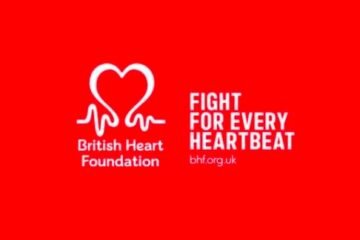The Right Care Right Place campaign aims to reduce the pressure on A&E departments and direct people to the most appropriate healthcare settings.
What is the Right Care Right Place campaign?
- The Right Care Right Place campaign is a public information and awareness campaign launched by the Scottish Government ahead of the expected increase in demand for the NHS over winter.
- The campaign helps people understand which setting is best for their medical concerns, such as NHS Inform website, NHS 24 helpline, pharmacies, GP practices, minor injury units, or A&E departments.
- The campaign stresses that A&E is only for genuine emergencies and life-threatening conditions, and that people should use other resources for less urgent or non-emergency issues.
Why is the campaign launched earlier than in previous years?
- The campaign is launched earlier than in previous years because the NHS is facing unprecedented challenges due to the ongoing Covid-19 pandemic and its impact on staffing and resources.
- The latest weekly A&E waiting time performance figures showed that a third of patients waited longer than the Scottish Government’s target time in accident and emergency departments.
- Health Secretary Michael Matheson said the campaign would alleviate pressure on the NHS and help everyone to get the right care, in the right place as quickly as possible.

How can people access the right care, in the right place?
- People can access the right care, in the right place by following these steps:
- Check the NHS Inform website for self-care advice and information on common health problems and local services.
- Call NHS 24 on 111 if they need urgent medical advice or are unsure where to go. NHS 24 can also arrange appointments with out-of-hours services or A&E if needed.
- Visit a pharmacy for minor ailments such as coughs, colds, sore throats, earache, indigestion, constipation, diarrhoea, etc.
- Contact their GP practice for ongoing or non-urgent health issues or concerns. GP practices can also refer patients to other services such as physiotherapy, mental health support, etc.
- Go to a minor injury unit for injuries such as cuts, burns, sprains, strains, etc. Minor injury units can also provide x-rays and stitches if needed.
- Dial 999 or go to A&E only for serious and life-threatening emergencies such as chest pain, breathing difficulties, severe bleeding, loss of consciousness, etc.
What are the benefits of using the right care, in the right place?
- Using the right care, in the right place can have many benefits for both patients and the NHS, such as:
- Saving time and money by avoiding unnecessary trips to A&E or GP practices.
- Getting faster and more effective treatment by accessing the most appropriate service for their condition.
- Reducing the risk of catching or spreading Covid-19 or other infections by limiting contact with other people in healthcare settings.
- Supporting the NHS staff who are working hard to cope with the increased demand and pressure on their services.
What are the challenges of implementing the Right Care Right Place campaign?
- Implementing the Right Care Right Place campaign may face some challenges, such as:
- Raising public awareness and understanding of the different healthcare options and how to access them.
- Ensuring that people have trust and confidence in the alternative services and do not feel that they are being denied or diverted from A&E or GP practices.
- Providing adequate funding and resources to support the alternative services and ensure that they can meet the needs and expectations of patients.
- Monitoring and evaluating the impact and effectiveness of the campaign on patient outcomes and satisfaction, as well as on NHS performance and efficiency.
Will the Right Care Right Place campaign make a difference?
- The Right Care Right Place campaign is a positive initiative that aims to improve patient care and experience, as well as to support the NHS staff and services during a challenging time.
- However, whether the campaign will make a significant difference depends on several factors, such as:
- The level of public engagement and compliance with the campaign messages and guidance.
- The availability and accessibility of alternative services across different areas and communities.
- The ongoing impact of Covid-19 pandemic on healthcare demand and capacity.
- The weather conditions and seasonal factors that may affect health issues and injuries.
The campaign will be launched later this month and will run until March 2024. It remains to be seen how successful it will be in achieving its goals.


















